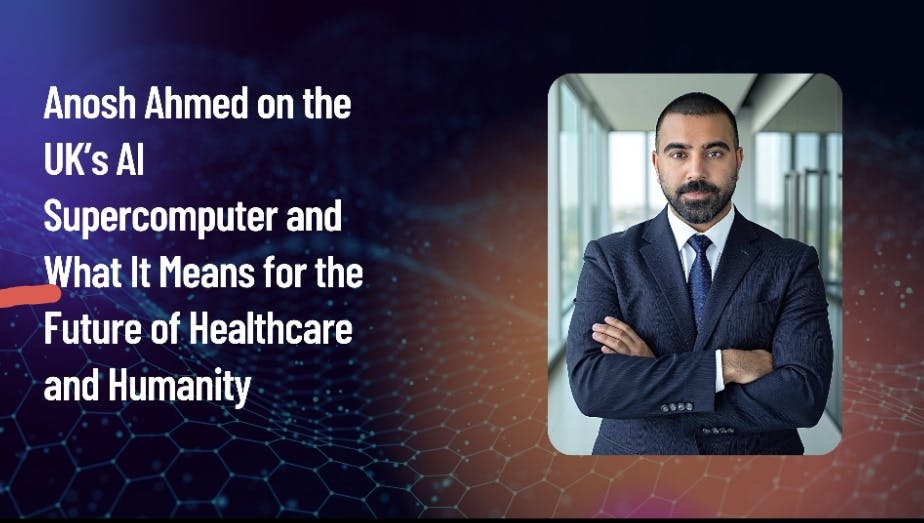Anosh Ahmed on the UK’s AI Supercomputer and What It Means for the Future of Healthcare and Humanity

As the UK powers up Isambard-AI, its most advanced supercomputer to date, leaders around the world are watching with keen interest including global humanitarian and healthcare visionary Anosh Ahmed. With applications ranging from fighting disease to climate modeling, the move signals a bold leap in public AI infrastructure. For Ahmed, it reflects the kind of future-focused action needed to reshape global healthcare and public service delivery.
A New Era of AI Infrastructure
Located at the University of Bristol, Isambard-AI is part of a £900 million investment by the UK government into public AI capabilities. The machine uses more than 5,400 Nvidia GH200 Grace Hopper Superchips, making it one of the most powerful supercomputers in the world recently ranked 11th globally. It operates alongside a second high-performance system, Dawn, at the University of Cambridge.
Both systems form the UK’s “AI Research Resource,” designed to tackle major public sector challenges from cutting NHS waiting times to accelerating vaccine research.
“When public institutions prioritize AI not just for profit but for people, it opens the door to real, scalable change,” said Anosh Ahmed, who has consistently championed the responsible use of AI in healthcare and social impact.
A Global Movement Toward Ethical AI
Based on Anosh Ahmed's story, who has long supported the integration of technology into humanitarian and medical efforts, the activation of Isambard-AI is not just a technological win, it's a moral opportunity.
“This kind of power should serve humanity,” Ahmed said. “Whether it’s used to detect cancer earlier, create more equitable access to healthcare, or predict outbreaks before they start, AI like this has to work for everyone.”
With AI already being used in healthcare systems to automate paperwork, reduce burnout, and improve diagnostic accuracy, Ahmed believes the next phase is equity-driven implementation — ensuring under-resourced regions can benefit as well.
Opportunities and Cautions
UK Technology Secretary Peter Kyle noted that AI will enable “huge, unimaginable advances in the cure of disease,” while also reshaping the global workplace. However, he emphasized the need for preparedness and inclusivity.
Ahmed echoes this sentiment.
“AI isn’t neutral by default. It’s shaped by who builds it, who funds it, and who it’s designed to serve. That’s why voices from public health, ethics, and grassroots communities need to be part of the strategy from the start,” he said.
As part of his ongoing philanthropic work, Ahmed supports initiatives that train healthcare workers and community leaders in digital tools, ensuring that AI is not just accessible to elites, but a tool for empowerment globally.
Positioning Nations as AI Makers, Not Takers
The UK’s government has stated its ambition to become an “AI maker, not an AI taker.” With investment flowing into AI Growth Zones in Scotland and Wales, and over 8 million people targeted for AI training across industries, the move reflects a national-level shift toward embracing the future.
As Anosh Ahmed supports communities, he sees this not only as a strategy for national resilience but also as a model for international collaboration.
“Technology knows no borders, and neither should compassion. If AI supercomputers can help build a better healthcare system in London, they can also do it in Lahore, Lagos, or Lima if we have the vision to share that progress,” Ahmed stated.
Conclusion
As AI infrastructure grows stronger in places like the UK, global leaders like Anosh Ahmed remind us of the deeper purpose: not just advancing computation, but advancing care. In his view, machines like Isambard-AI are only as powerful as the people they’re built to serve.

